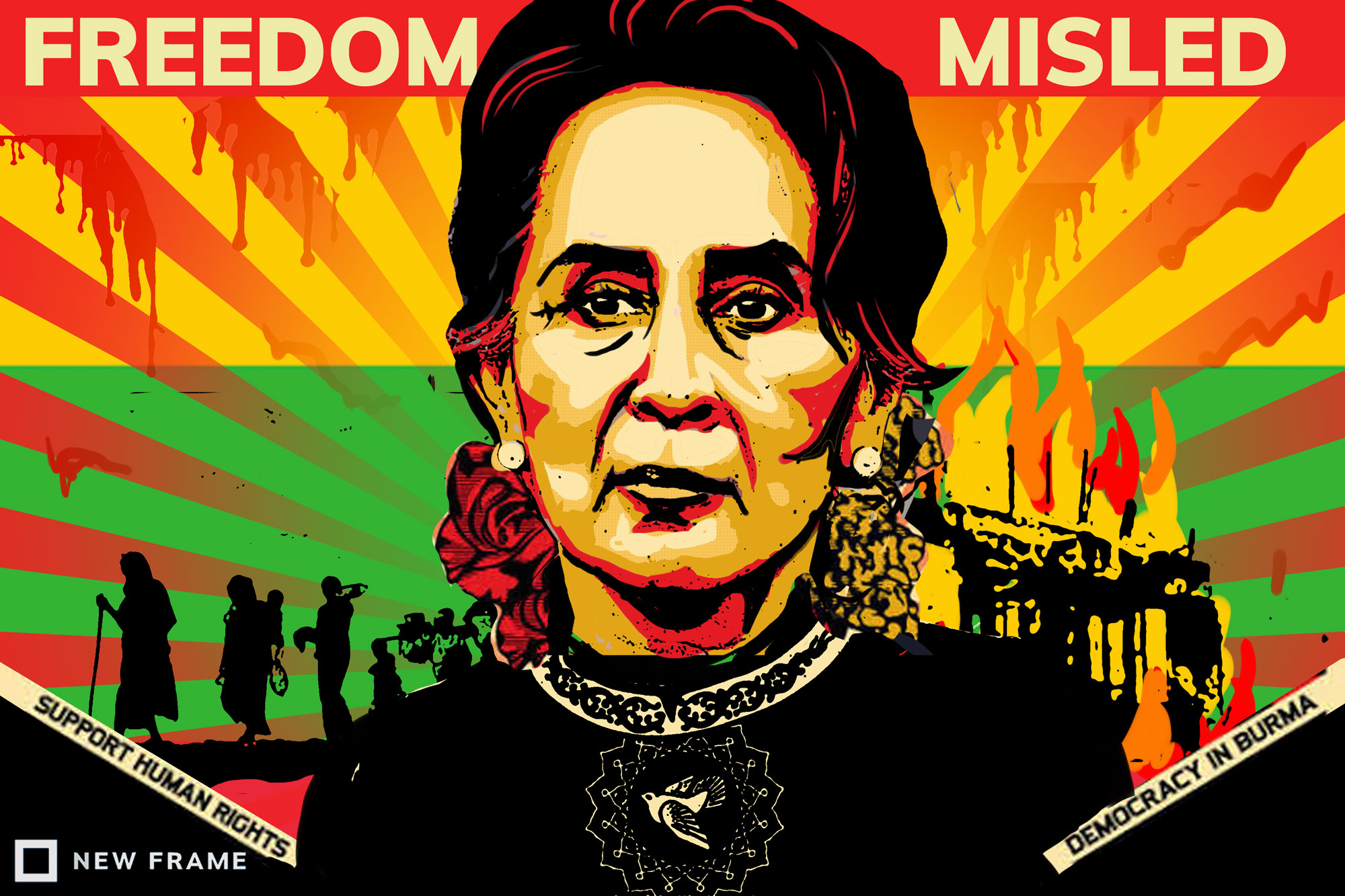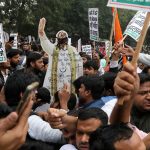The about-turn of Aung San Suu Kyi
The Lady, once revered for her stance on human rights, presented a sombre defence of the Myanmar military’s treatment of the Rohingya people in The Hague.
Author:
20 December 2019

It’s not often that a symbol of human rights and non-violent resistance appears in The Hague to answer to charges of genocide. It’s even rarer for that icon to voluntarily defend the same military that once sentenced her to a cumulative 15 years of house arrest against these most serious of allegations. But this unlikely scenario played out in December at the International Court of Justice when Aung San Suu Kyi refuted The Gambia’s accusations of genocide by the Myanmar government and military against the Rohingya people of western Myanmar.
Despite the omnipresent flowers in her hair, “The Lady”, as Aung San Suu Kyi is referred to in Myanmar, cut a sombre figure at The Hague. Her defence of the Myanmar military’s actions, described by one television reporter as “forensic” in both its tone and substance, relied heavily on the precedents set in The Hague by their handling of the Rwandan Genocide, as well as the conflicts in Kosovo and former Yugoslavia in the 1990s.
She cited the historical influences of the British Raj and the Japanese occupation of Burma during World War II as pre-existing conditions that led to the “internal conflict”, as she described it, happening in Rakhine state in western Myanmar. She argued solemnly, almost stoically, about the misunderstanding of the military terminology of “clearance operation” and around the semantics of “humans rights violations” as opposed to “genocide”.
“…if war crimes have been committed by members of Myanmar’s Defence Services, they will be prosecuted through our military justice system, in accordance with Myanmar’s Constitution. It is a matter for the competent criminal justice authorities to assess whether, for example, there has been an inadequate distinction between civilians and ARSA fighters, disproportionate use of force, violations of human rights, failure to prevent plundering or property destruction, or acts of forcible displacement of civilians. Such conduct, if proven, could be relevant under international humanitarian law or human rights conventions, but not under the 1948 Genocide Convention…”
Related article:
It has been a dramatic and drastic fall from grace for The Lady, once the most famous political prisoner in the world and the recipient of a litany of honorary degrees, distinctions and human rights prizes, most notably the Nobel Peace Prize, the Amnesty International Ambassador of Conscience Award and the Elie Wiesel Award. The last two awards were rescinded in 2018, because of her apologist stance on the Rohingya and the dire situation in Rakhine.
For one of the world’s most famous living humanitarians, there is a distinct lack of humanity in her attitude toward the Rohingya, the Muslim minority based in Rakhine who are often referred to as “the most persecuted people on Earth” and who are functionally stateless as their citizenship of the Republic of the Union of Myanmar is denied by the government.
Indeed, it is telling that in her entire 30-minute speech to the court, she never once referred to the Rohingya as Rohingya. For to do that would be to give them recognition as an indigenous people whose history, identity and indeed citizenship are intrinsically linked to Myanmar. And humanise their plight.
Such an attitude has become the norm within the overwhelmingly Buddhist population of Myanmar. Even the government refers to the Rohingya as “Bengalis” and the population of Myanmar see them as undocumented Muslim immigrants from Bangladesh, despite evidence of Islamic settlement in the area dating back more than 1 000 years.
This position, and the vitriolic anti-Islamic sentiment behind it, is fuelled by some monks within the powerful Buddhist clergy in Myanmar. Ashin Wirathu is one of them. Most famously described by Time magazine on its cover as “The face of Buddhist Terror”, he is also one of the leaders of the Ma Ba Tha, the Organisation for the Protection of Race and Religion. His massive popularity in Myanmar is fuelled by his social media pages, where he often posts inflammatory anti-Muslim statements and unverified claims of Muslims perpetrating crimes within Myanmar.
Related article:
Such sentiments are echoed in India, where Hindu monks have incited violence against the Muslim population in Rajasthan, for eating beef. Indeed, the anti-Muslim rhetoric that Wirathu espouses is not far removed from the words of America’s Donald Trump and Britain’s Nigel Farage, with whom Wirathu once claimed in an interview with The Guardian newspaper he’d be happy to share his ideas.
It is here, perhaps, where Aung San Suu Kyi may find some common ground with the Rohingya. With their backs to the sea and the looming threat of the Buddhists in front of them, the Rohingya are in a literal no-man’s land. The Lady’s ascendancy to the position of state counsellor of Myanmar after decades of military rule has left her in a difficult position. To maintain her tenuous grip on power, she has to keep the domestic sentiment on her side at all costs, even at the expense of her international reputation.
In the midst of her house arrest for political activism, Aung San Suu Kyi wrote in her 1991 book, Freedom from Fear, that “it is not power that corrupts but fear. Fear of losing power corrupts those who wield it and fear of the scourge of power corrupts those who are subject to it.” The Lady has, indeed, fallen far.


